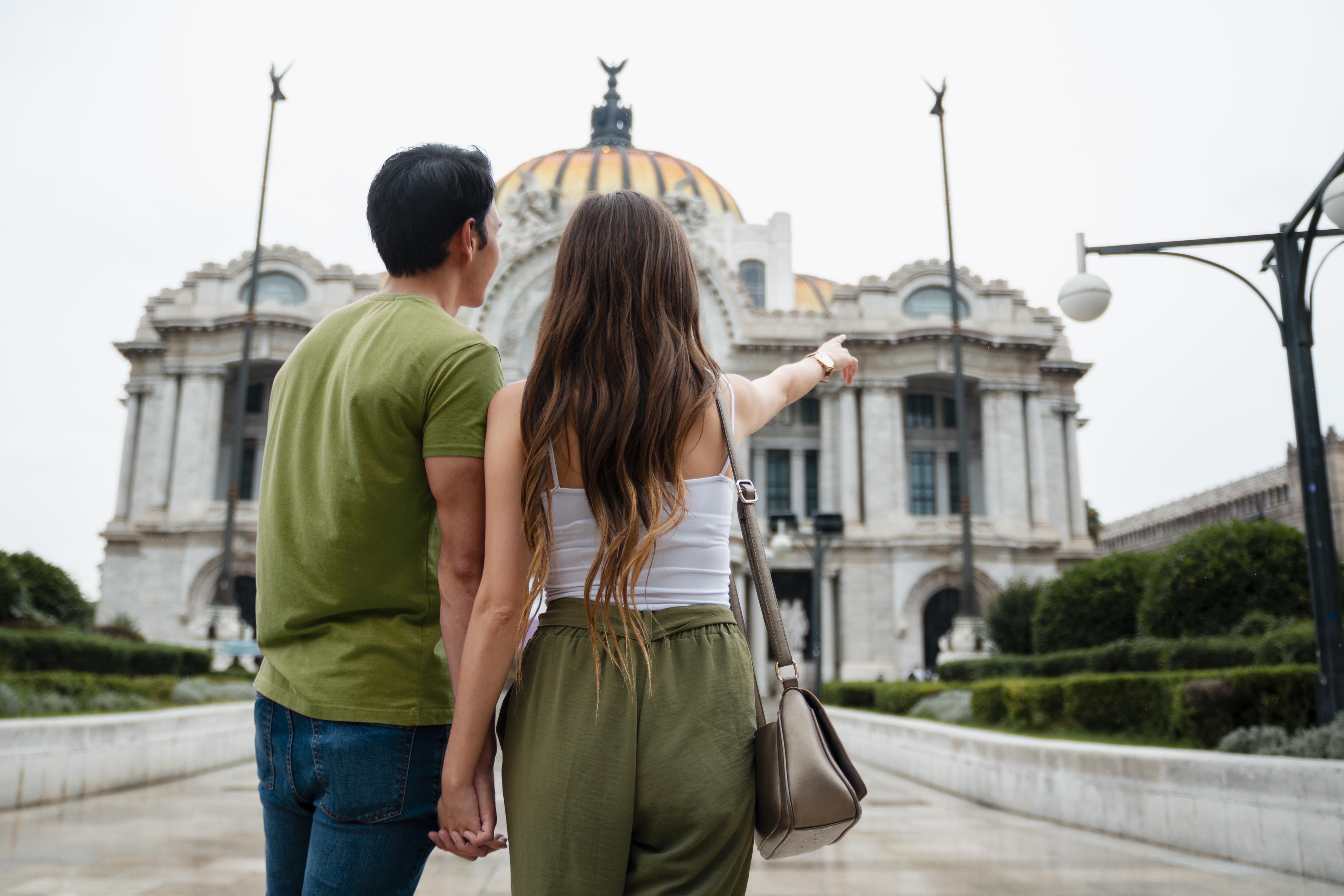Things to Know Before Traveling to Spain for the First Time
Spain, with its vibrant culture, rich history, and stunning landscapes, is a dream destination for many travelers. If you're planning your first trip to this beautiful country, there are a few things you should know to make your experience unforgettable. From holiday house exchanges to essential travel hacks, this guide will help you prepare for an amazing Spanish adventure.
1. Consider Holiday House Exchanges
One unique and cost-effective accommodation option in Spain is holiday house exchanges. This involves swapping homes with someone else, providing a more authentic experience and often saving money. It’s a fantastic way to immerse yourself in the local culture and live like a local. Websites dedicated to house exchanges can help you find reliable exchange partners, ensuring a safe and enjoyable stay.
2. Travel Hacks for a Smooth Trip
Traveling can be stressful, but these travel hacks can help you navigate Spain with ease:
Book in Advance:
Popular attractions like the Sagrada Familia in Barcelona or the Alhambra in Granada can sell out quickly. Booking tickets in advance can save you from long lines and disappointment.
Use Public Transport:
Spain’s public transportation system is efficient and affordable. Trains, buses, and metros are great ways to get around cities and between destinations. Learn Basic Spanish Phrases: While many Spaniards speak English, especially in tourist areas, knowing a few basic Spanish phrases can enhance your travel experience and help you connect with locals.
3. Tips for Couples
Spain is a romantic destination, perfect for couples looking to explore together. Here are some tips for couples to make the most of their trip: Romantic Walks: Stroll through the enchanting streets of Seville’s old town or the charming alleyways of Granada. The ambiance is perfect for hand-in-hand walks.
Savor Local Cuisine:
Share tapas in Madrid or enjoy a seaside paella in Valencia. Spanish cuisine is diverse and delicious, and trying new dishes together can be a delightful experience.
Visit Wine Regions:
Spain is famous for its wine. A visit to the vineyards in La Rioja or a wine tour in Catalonia can be a memorable part of your journey.

4. Most Visited Destinations
Spain boasts some of the most visited and iconic destinations in the world. Make sure to include these on your itinerary:
Barcelona:
Famous for Gaudí’s masterpieces like Park Güell and the Sagrada Familia, Barcelona is a vibrant city with a unique blend of architecture, art, and culture.
Madrid:
The capital city offers world-class museums, such as the Prado and Reina Sofía, stunning parks, and a lively nightlife.
Seville:
Known for its flamenco dancing and historic landmarks like the Alcázar and Seville Cathedral, this city is full of passion and history.
Granada:
Home to the Alhambra, a stunning Moorish palace and fortress, Granada is a must-visit for history and architecture enthusiasts.
Valencia:
With its futuristic architecture, beautiful beaches, and the famous Las Fallas festival, Valencia offers a mix of tradition and modernity.
5. Understanding Spanish Culture and Etiquette
Spain's culture is rich and diverse, with each region having its own unique traditions. Understanding local customs can make your trip more enjoyable:
Siesta Time:
Many businesses close in the afternoon for a few hours to observe the traditional siesta. Plan your activities around this break to avoid inconvenience.
Dining Hours:
Spaniards eat later than in many other countries. Lunch typically starts around 2 PM, and dinner can be as late as 9 or 10 PM. Embrace this schedule to enjoy authentic dining experiences.
Tipping:
Tipping is not as common in Spain as it is in some other countries. A small tip or rounding up the bill is appreciated but not expected.
6. Exploring Spanish Festivals
Spain is famous for its vibrant festivals, which are a must-see if they coincide with your visit:

La Tomatina:
Held in Buñol, this festival is a giant tomato fight that attracts thousands of participants every August.
Running of the Bulls:
In Pamplona, the San Fermín festival in July includes the famous encierro, or running of the bulls.
Semana Santa:
This Holy Week celebration features elaborate processions and religious ceremonies, especially notable in Seville and Málaga.
7. Packing Essentials
Knowing what to pack can ensure a comfortable trip:
Comfortable Shoes:
Spain's cities are best explored on foot, so pack comfortable walking shoes.
Seasonal Clothing:
Spain's climate varies. Bring lightweight clothing for summer, but don't forget a jacket for cooler evenings. In winter, especially in northern Spain, you'll need warmer attire.
Adapters and Converters:
Spain uses Type C and F plugs and operates on 230V. Make sure you have the right adapters and converters for your electronics.
8. Safety Tips
While Spain is generally safe, it's wise to be cautious:
Pickpocketing:
Be vigilant in crowded areas and tourist spots, as pickpocketing can be an issue.
Secure Valuables:
Use a money belt or anti-theft bag to keep your valuables safe.
Stay Informed:
Keep up with local news and follow any travel advisories.
9. Embrace the Siesta Lifestyle
One of the most unique aspects of Spanish culture is the siesta. This midday break, usually from 2 PM to 5 PM, is a time for relaxation and respite from the heat. Many shops and businesses close during these hours, so plan your activities accordingly. Embracing the siesta lifestyle can help you avoid the hottest part of the day and recharge for the evening’s activities.
10. Enjoying Spain's Nightlife
Spain is famous for its vibrant nightlife. Whether you're into quiet bars or lively nightclubs, there’s something for everyone:
Tapas Bars:
Begin your evening with a tapas crawl, sampling small dishes at different bars.
Flamenco Shows:
Experience traditional Spanish music and dance at a flamenco show, especially in Andalusia.
Nightclubs:
Cities like Madrid, Barcelona, and Ibiza are known for their dynamic club scenes, with parties lasting until dawn.
11. Day Trips and Excursions
Don't limit yourself to just the cities; Spain's countryside and smaller towns offer incredible experiences:
Toledo:
A short trip from Madrid, this historic city is known for its medieval architecture and stunning views.
Montserrat:
Accessible from Barcelona, this mountain range offers hiking, a monastery, and breathtaking vistas.
Ronda:
Famous for its dramatic cliffs and ancient bridge, Ronda is a picturesque town in Andalusia worth visiting.
12. Navigating Language Barriers
While many Spaniards speak English, especially in tourist areas, learning a few basic Spanish phrases can be very helpful:
Greetings:
"Hola" (Hello), "Buenos días" (Good morning), "Buenas tardes" (Good afternoon), "Buenas noches" (Good evening/night).
Courtesy Phrases:
"Por favor" (Please), "Gracias" (Thank you), "De nada" (You're welcome), "Perdón" (Excuse me/Sorry).
Basic Questions:
"¿Dónde está...?" (Where is...?), "¿Cuánto cuesta?" (How much does it cost?), "¿Habla inglés?" (Do you speak English?).
Let's Pack Our Bags
Traveling to Spain for the first time is an exciting adventure filled with new experiences and unforgettable moments. By considering holiday house exchanges, utilizing smart travel hacks, following useful tips for couples, and visiting the most visited destinations, you can ensure a fantastic trip. Spain’s charm, warmth, and diversity await you—¡Buen viaje!





